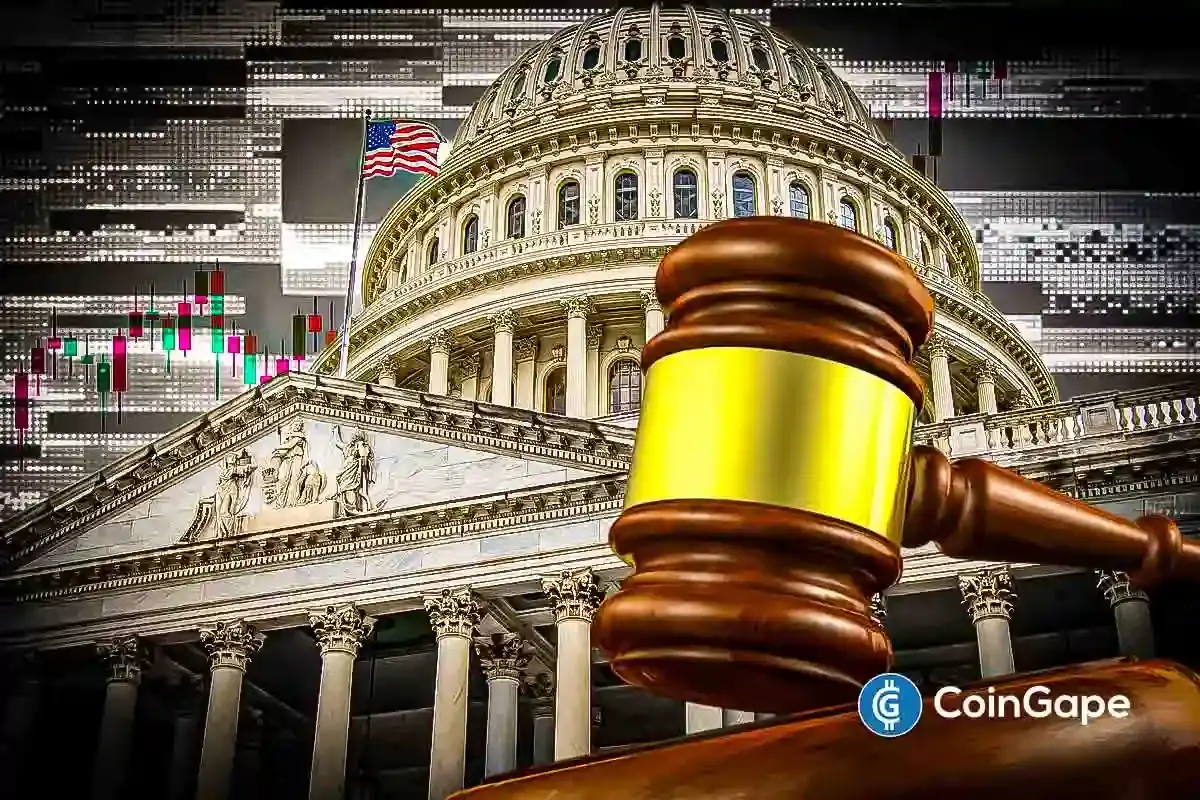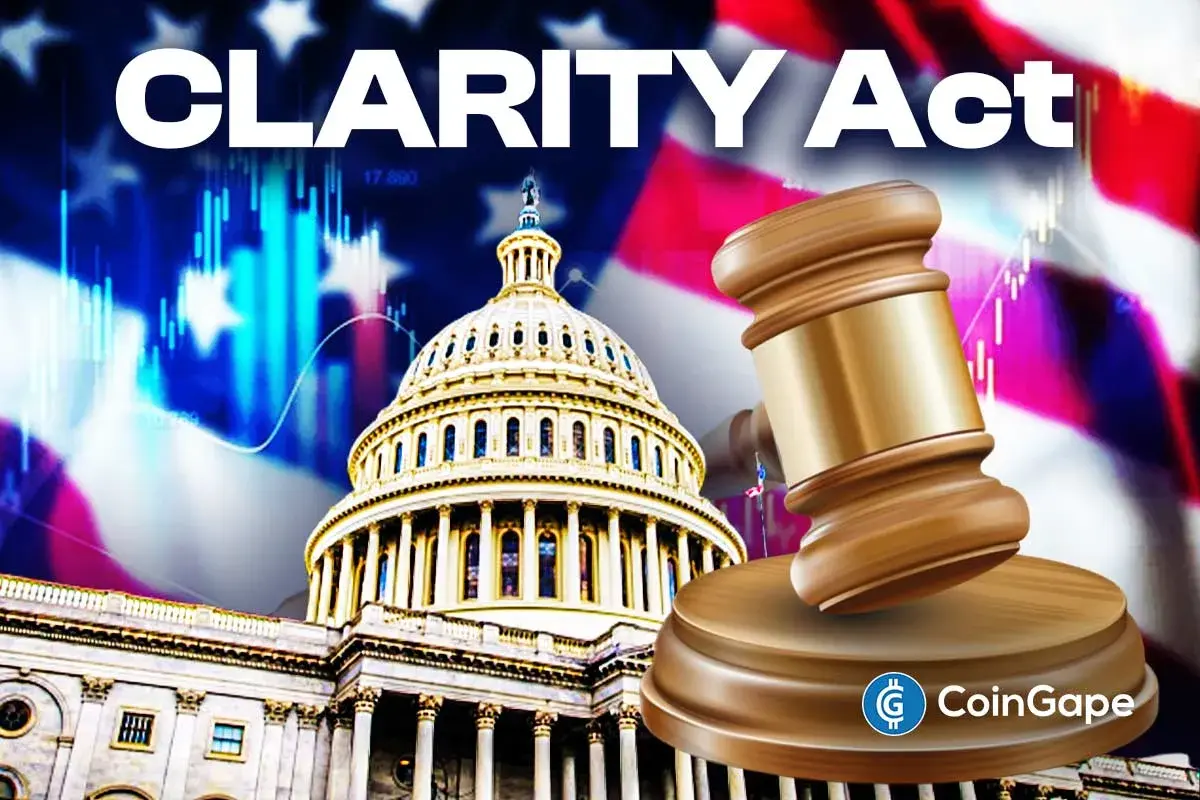US House Releases Crypto Market Structure Discussion Draft, Here’s All

Highlights
- SEC to oversee crypto as securities only if projects remain centralized under 10% token control.
- CFTC set to lead crypto oversight as regulator of digital commodities and spot markets.
- Crypto bill removes wealth checks, allowing all retail investors access to digital asset markets.
A new crypto market structure discussion draft has been released by key U.S. House committees, marking a new phase in digital asset regulation.
The U.S. House Financial Services Committee and House Agriculture Committee published the draft on Monday, May 5, 2025, aiming to create a more structured and transparent regulatory environment for cryptocurrencies and related markets.
Clear Roles for US SEC and CFTC Crypto Market Bill
The draft crypto market bill outlines a more distinct separation of authority between the Securities and Exchange Commission (SEC) and the Commodity Futures Trading Commission (CFTC). Under the proposed framework, the US SEC will regulate digital assets that are considered investment contracts. The CFTC will oversee digital commodities and their spot markets.
This approach addresses concerns raised during earlier debates over the Financial Innovation and Technology for the 21st Century Act (FIT21). Justin Slaughter of Paradigm commented on X, “Overall, this bill again would make the CFTC the dominant crypto regulator,” but he noted that the SEC would retain jurisdiction until decentralization is proven.
The bill also aims to prevent securities laws from applying to digital commodities traded on secondary markets unless those transactions grant the buyer rights to the issuer’s profits or assets.
Definitions for Decentralization and Network Maturity
A clear decentralization test is included in the crypto market bill draft. A project must not be under unilateral control by any single party. If any party holds more than 10% of the token supply, they must disclosed while the network remains centralized.
A blockchain is described as “mature” if it has utility, is fully developed, is open, follows transparent rules, and is not centrally controlled. These definitions aim to clarify when networks transition from securities oversight to commodities regulation.
Such criteria will assist developers and regulators in determining how a project should be governed during its lifecycle.
Investor Access and Regulatory Exemptions
The draft crypto market bill removes wealth and income restrictions for retail investors, opening the market to a wider public. This shift eliminates accredited investor checks and suitability standards that were seen as barriers to broader participation.
In addition, the draft outlines how digital commodity exchanges can register with the CFTC. It also introduces an optional early registration process for issuers and encourages joint rulemaking between the US SEC under the new chair Paul Atkins and CFTC.
For decentralized finance (DeFi), the draft proposes exemptions for protocols that are non-custodial and do not exercise discretionary control over users’ funds.
Stablecoin Definitions and Senate Challenges
Stablecoins are defined under the draft crypto market bill without being categorized as securities. However, a separate stablecoin bill has encountered resistance in the Senate. Nine Senate Democrats recently withdrew support, raising concerns over risks that new language might introduce.
Senator Chuck Schumer has voiced concerns over the operations of Tether, a major stablecoin issuer. These concerns have created uncertainty around the timeline for comprehensive stablecoin regulation.
Rep. French Hill stated, “Our discussion draft builds upon that work and provides much-needed regulatory clarity for the digital asset ecosystem.” Rep. Glenn Thompson added, “Regulatory clarity is long overdue in digital asset markets. This is the first step in advancing a comprehensive framework.”
A hearing titled “American Innovation and the Future of Digital Assets: A Blueprint for the 21st Century” is expected to further discuss the contents of the draft.
Push for Capital Gains Tax Reform on Crypto Market
Alongside the release of the draft crypto market bill, public discussion around tax treatment of crypto transactions has also increased. Industry voices have called for a change in how everyday crypto use is taxed ahead of the US SEC crypto roundtable.
Kristoph Jeffers wrote on X,
“Now let’s eliminate cap gains tax on Bitcoin so people can use it as currency.” Matthew Sigel, head of digital assets research at VanEck, replied, “Agreed. Hard to call it money if every purchase triggers a 1099.”
Sigel referred to the ongoing work in the Senate to introduce a de minimis exemption through the Lummis-Gillibrand bill, which would allow small crypto transactions to go untaxed. “A de minimis exemption for crypto transactions is long overdue, and already in the works,” he wrote.
- Michael Saylor Opposes Zcash-Style Privacy for Bitcoin, Citing Shutdown Risk
- Crypto Exchange Bitget Unveils Major GetAgent AI Overhaul With Faster Insights
- 8 Best Crypto Exchanges in Kenya for Investors and Traders in 2025
- Crypto Exchange HashKey Set to Open Investor Orders for $200M IPO, Eyes December Listing
- Just-In: Elon Musk’s SpaceX Moves Another $100M in Bitcoin, What’s Happening?
- Chainlink Price Prediction as Reserves Pass 1M LINK – Is $20 Next?
- Ethereum Price Breaks Out of Falling Wedge: Next Target Now Set at $5K
- Is ZCash Price Set for a Bigger Rally After Its 10% Surge on the Bitget Listing?
- Aster Price Outlook as Buyback Wallet Burns 77.86M ASTER Worth $79.81M
- What’s Next for Dogecoin Price After Whales Scoop 480M DOGE?
- Can Solana Price Bounce Back to $200 by End of 2025?

















